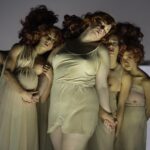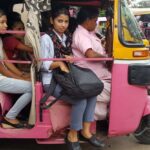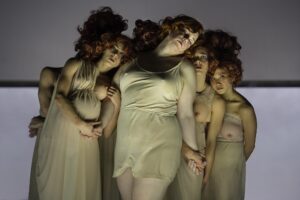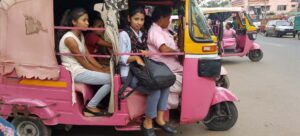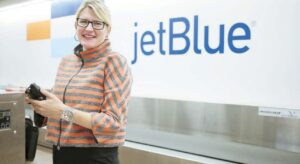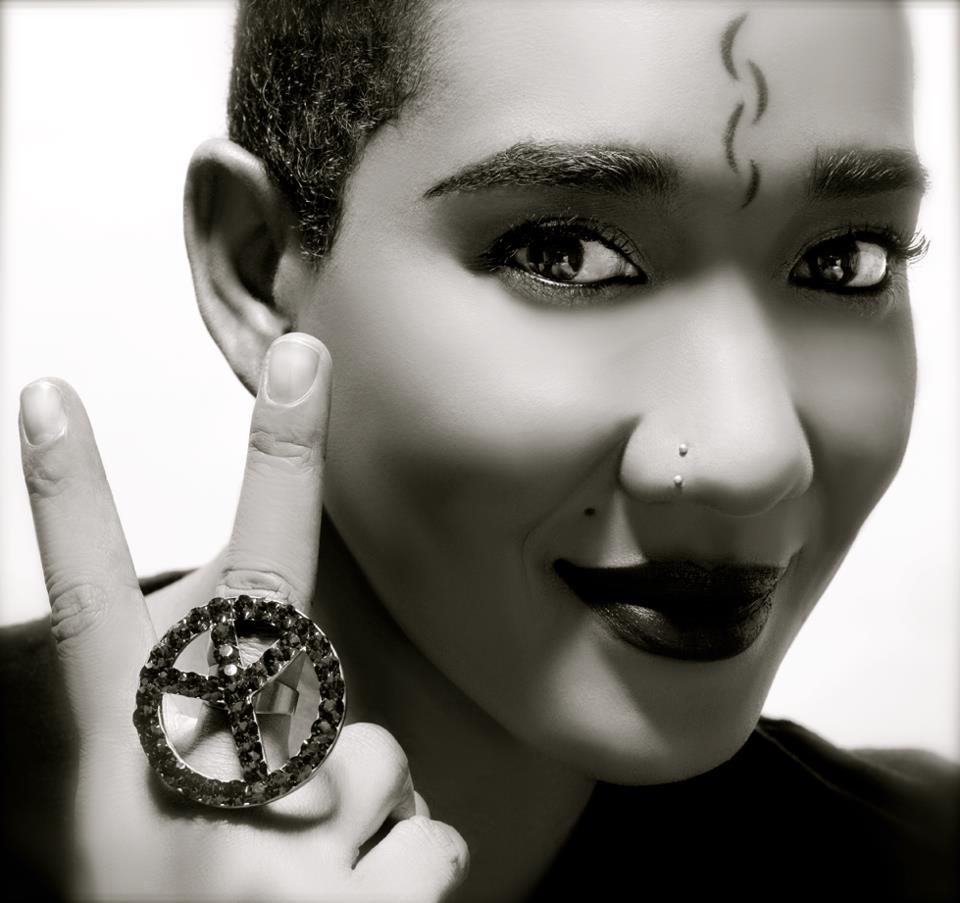
Reggae Fusion Artist Diana King Talks To Girls That Roam About Family Life, New Projects, And Pride In Herself And Jamaica
by Heather Cassell
“Shy Guy” singer Diana King has been rocking the world with her reggae fusion melodies since the 1990s, but it hasn’t been until the last five years that she’s truly fell freedom.
It doesn’t matter that she’s lived in the United States since she was 26-years old when she signed a deal with Sony Music and her music career took off.
Until recently, fear gripped the 45-year old singer, who is headlining Silicon Valley Pride’s first-ever reggae stage this Sunday, August 28 in San Jose, California, life.
“I can’t be gay. I can’t be a lesbian, no, no, no,” says Diana, who describes herself and an introvert and a very private person.
However, since Diana became the queer face of Jamaica following her simple “coming out” post on Facebook in 2012, pride has taken over her heart and life.
“Since I came out, I’ve been doing quite a few Pride events and that has been awesome,” says Diana. “Pride is the one place where I can be 100% myself. It is where I feel as an LGBT artist I feel the most me, you know, because we are more alike than not at Pride.”
Diana loves her fans all over the world, but for her lesbian, gay, bisexual, transgender and queer fans she changes the lyrics to her biggest hit “Shy Guy” to “Shy Girl,” she says.
She also encourages her fans at Pride to send messages of “Happy Pride” to Jamaica, which celebrated its second-ever Pride festival, August 1 – 7 with great success. The week-long celebration produced by the Jamaica Forum of Lesbians, All-Sexuals and Gays, the country’s leading queer organization better known as J-FLAG, attracted upward of 500 Pridegoers and went off without any incidents, reports OutCaribe.
She notes that last year, “everyone thought it would be really horrible, but it went on and it was great.”
“This year they have a face of Pride, a very well respected Jamaican who happens to be gay,” continues Diana, praising J-FLAG. “So, it’s teaching them that we are equal. So, I see those changes, but we still have a far way to go in Jamaica.”
“I never thought I would see that ever, so hats off to J-FLAG,” she says. “It’s just awesome for what they are doing now.”
“Since I’m not there most of the time, I have to bring awareness to Jamaica being a Jamaican and speak of our advances and our accomplishments,” says Diana, who has returned to Jamaica three times since coming out. “I always take the opportunity to relay that information and to show my pride for Jamaica Pride.”
She hopes to participate in next year’s Jamaica Pride.
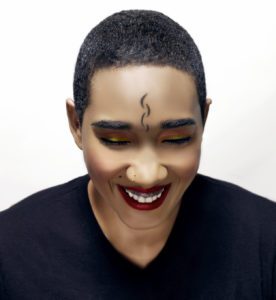
True Colors
She knows the importance of being authentic to herself, to Jamaica’s LGBT community, and to Jamaica.
In spite of starting her journey of self-acceptance about her sexuality in her late 20s, part of her hesitancy was being a protective mother of her daughter, who she didn’t provide her name to protect her privacy, and son, Dior King. She didn’t want him to get bullied at school. “I didn’t know what would happen.”
Little did she know that her son had gay friends and teachers until she sat him down to come out to him when he was 16-years-old.
“He was just laughing,” she says when she sat him down to talk about her sexuality. “He says, ‘Mom, please, I know this. I don’t care. You are my mom. I love you. I don’t care what people think. Be yourself mom.’”
“My mouth was wide open because I didn’t know that he was that cool,” Diana continues.
“It was just this big fear. Ever since that I am just fearless,” says Diana. “It’s true what they say about the truth, it sets you free. It sets you free and there’s no one, no opinion that messes with you. I have to be myself. As long as I’m not hurting anyone it’s all good with me.”
Long before that moment she felt the silent pull from other LGBTQ Jamaicans she met at private parties.
“I would go to Jamaica and they would have private parties. I would see how proud they were to have me there,” says Diana. “I think that it affected me. They never said the words, but I think I could hear them saying, ‘Man, if Jamaica knew you were gay it would be so awesome for us.’”
Her concerns were more than simply fear and privacy. Jamaica might be known for is “One Love” philosophy made popular by fellow Jamaican reggae artist Bob Marley, but there is very little love for LGBTQ people in Jamaica.
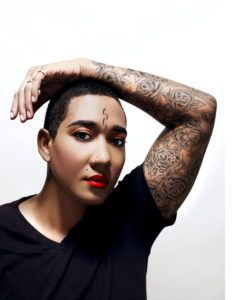
A Long Way To Go Before ‘Everything Is Gonna Be Alright’
Even with the progress, being gay is still illegal under Jamaica’s anti-buggery law. Those charged with homosexuality can face up to 10 years in prison. Additionally, there are constant reports of public murders of transgender individuals and gay men on the streets to in their homes that go unsolved.
“Overall, I can say being a Jamaican, I can say Jamaica is pretty lawless in many ways,” says Diana who gets angry about the violent crimes against Jamaicans kids, LGBTQ people, and women that more often than not go unpunished. “There is no real outrage. Sometimes I get really upset about that.”
Many of the LGBTQ people who are killed in Jamaica are “usually the lower class Jamaicans who are gay or assumed to be gay. Those are the ones usually in danger of being hurt or killed,” says Diana, explaining that upper-class and people who are “powerful” and rumored to be gay are generally left alone.
However, it still remains a challenge for queer high-profile Jamaicans to publicly come out due to open contradictions and the dangers.
“When I speak to people one-on-one they will say they don’t care. Even your friends, your allied friends will say, ‘We don’t care. We love you as a person. You are awesome,’” says Diana, pointing out that nonchalant attitude quickly turns hypocritical once people gather together into a group and something queer happens. “But if something occurs, if there is a situation you don’t get protected.”
“It would be very hard for a Jamaican in the limelight to come out,” continues Diana, who has been waiting for someone else of her stature to publicly come out. “It’s hard. It’s not going to happen unless the laws change to protect us. That’s the only thing that I think a Jamaican in a high place will come out again.”
Many attempts to overturn Jamaica’s anti-buggery law have failed. Currently, Maurice Tomlinson, a Jamaican gay attorney and activist who is based in Toronto, Canada, 2011 case is before the Jamaican Supreme Court. Last month, Arlene Harrison-Henry, Jamaica’s ally official public defender, appealed her exclusion from the lawsuit that, reports Erasing 76 Crimes.
New York-based Jamaican lesbian-feminist poet and activist Staceyann Chin also speaks out regularly about Jamaica’s anti-gay ways.
The constant chipping away by activists at Jamaica’s social fabric, social media, and pressure from the outside world on the Caribbean as a whole as the LGBTQ travel experts continue to eye the 28 island nations as the next big destination is slowly creating change that is taking hold.
“I think change is coming. I do see changes,” says Diana, explaining that the changes are slow in coming due to long-held cultural beliefs. “Cultures play a big part, you know, growing up in Jamaica there was not one LGBT role model ever. So, it’s not so easy for us to know who we are.”
However, because Diana, Maurice, and Staceyann along with Jamaican LGBTQ activists at J-FLAG and Angeline Jackson, founder and executive director of Quality of Citizenship Jamaica along with the internet and social media a groundswell of change is occurring.
“Because of social media Jamaican’s are seeing more of the world,” says Diana “So, they see gay people living their lives [and] myself as [the face of Jamaica], an LGBT Jamaican.”
When she came out four years ago she didn’t even know she was the first well-known Jamaican to speak openly about her sexuality when she did it, she says. She simply didn’t want to live in fear and be constantly on guard anymore.
“I’m very private, but it wouldn’t go away. It kept poking me. For some reason it kept poking me, ‘You should say the words. You can’t just keep it to yourself,’ says Diana.
She also felt the silent call from other LGBTQ Jamaicans she met at private parties.
“I would go to Jamaica and they would have private parties. I would see how proud they were to have me there,” says Diana. “I think that it affected me. They never said the words, but I think I could hear them saying, ‘Man, if Jamaica knew you were gay it would be so awesome for us.’”
She couldn’t hold her secret within her any longer. She broke through her silence.
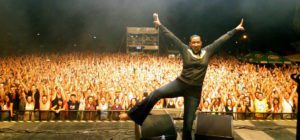
Freedom & Pride
Everything Diana feared about harming her kids, losing her career, and other fears didn’t come into being. Following her claiming her sexuality publicly 95% of the response was supportive of her, she says.
Diana couldn’t be prouder of her family, her life, and her community.
In spite of the sadness of the breakup of her decade long relationship with her fiancé that is still fresh as she spoke with Girls That Roam.
“It’s a shame now that we can get married,” says Diana. “After so many years you don’t expect it, but we are still friends.”
She’s focused on the blessings she has in her life, such as her son Dior is about to turn 20-years old and is a super smart astrophysics student in graduate school, being the guardian of her grandaughter, and being an independent artist.
“I’m very proud of him. He’s doing great,” says Diana, who used to punish him by requiring him to watch the science channel. Little did she know his silence was a signal that her sentence wasn’t really punishment. “He’s really awesome.”
However, life isn’t as easy for her 29-year old daughter, who was diagnosed with schizophrenia when she was 18-years old. It was a difficult time and they continue to rise to the challenges of the mental disorder.
“[Children at that age] don’t know what is going on and as a parent you try to help, but your hands are tied because your child is an adult. The legalities come in and makes it harder to help your child because she’s no longer a child,” says Diana. “So, that made it really rough.”
Diana would like to speak out more about mental health issues, because it’s a problem not only in American but around the world, “It’s so taboo and it shouldn’t be,” she says, but she still struggles with her own introverted personality.
It’s that shame that stops people from seeking the help they need, says Diana who believes reform is needed for the mental health system, but isn’t quite ready to become more active and vocal.
Right now she’s becoming a parent again to her eight-month old granddaughter. Six months ago Diana, who struck out on her own at age 13 and then had her daughter when she was 16-years old, found herself a parent again. She became the legal guardian of her daughter’s then-two-month old daughter.
“I’ve learned a lot. At 45 it’s a different perspective of being a parent than I had as a teenager or even in my 20’s when I had my son, so I’m excited,” says Diana, who is also giving birth to new work.
She’s currently working on reggae and house songs that will eventually be included on two different albums, says Diana, who doesn’t like talking much about her what she’s working on before it’s ready to be released.
She loves the freedom of being an independent artist and technology has brought to the art form. The current format of releasing music as its made suits her.
“It’s great because now I’m an independent artist, DYI, so I do everything myself,” says Diana, who struck out on her own five years ago. “It’s really [an] awesome time to just be an artist and experiment and have the freedom to do that.”
“I’m just having fun, you know, putting myself out [there] and getting to be 100% authentic in everything that I do now,” she says.
Catch Diana at Silicon Valley Pride hosted along Almaden Boulevard in San Jose, California. Advance tickets are $10 each day or $18 for two days. For more information, visit svpride.com.
Book your next trip to Jamaica with Girls That Roam Travel. Contact Heather Cassell at Girls That Roam Travel in association with Travel Advisors of Los Gatos at 415-517-7239 or at .
To contract an original article, purchase reprints or become a media partner, contact .

